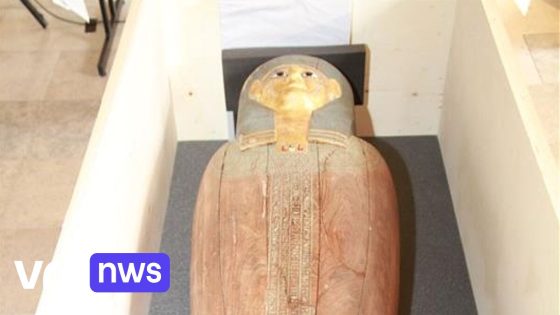Belgium’s cultural heritage took a significant step forward on 2025-07-12 11:08:00, as two Egyptian artefacts were officially returned from Brussels to Egypt. The repatriation ceremony took place at the Royal Museums of Art and History in Jubelpark, highlighting Belgium’s commitment to preserving international cultural property.
- Koninklijke Musea returned Egyptian artefacts to Egypt
- Brussels parquet handed over two items
- Sarcofaag intended for rich Egyptian 3,000 years ago
- Wooden beard included in returned artefacts
- Police seized items after Interpol operation
- Items confiscated by Brussels police 10 years ago
The most remarkable of the two artefacts is a sarcophagus dating back 3,000 years, originally crafted for a wealthy Egyptian individual. Alongside it, a wooden beard was also handed back. Both items had been seized by Brussels local police a decade ago following an Interpol operation, emphasizing Belgium’s active role in combating illicit trafficking of cultural goods.
What does this mean for Belgium’s museums and cultural diplomacy? And how does this repatriation impact the broader fight against illegal artefact trade? Let’s explore the local significance of this event.
Why is this repatriation important for Belgium and its cultural institutions? It reflects a growing responsibility to ensure that artefacts are preserved in their rightful context. This event also raises awareness about the ongoing challenges museums face regarding provenance and ethical acquisitions.
- Highlights Belgium’s cooperation with international law enforcement like Interpol
- Demonstrates the Royal Museums of Art and History’s commitment to transparency
- Encourages public interest in cultural heritage and ethical museum practices
Looking ahead, Belgian institutions may increase efforts to identify and repatriate other contested artefacts. Will more returns follow? Belgian museums and authorities must continue fostering partnerships that respect cultural origins and promote global heritage protection.






























